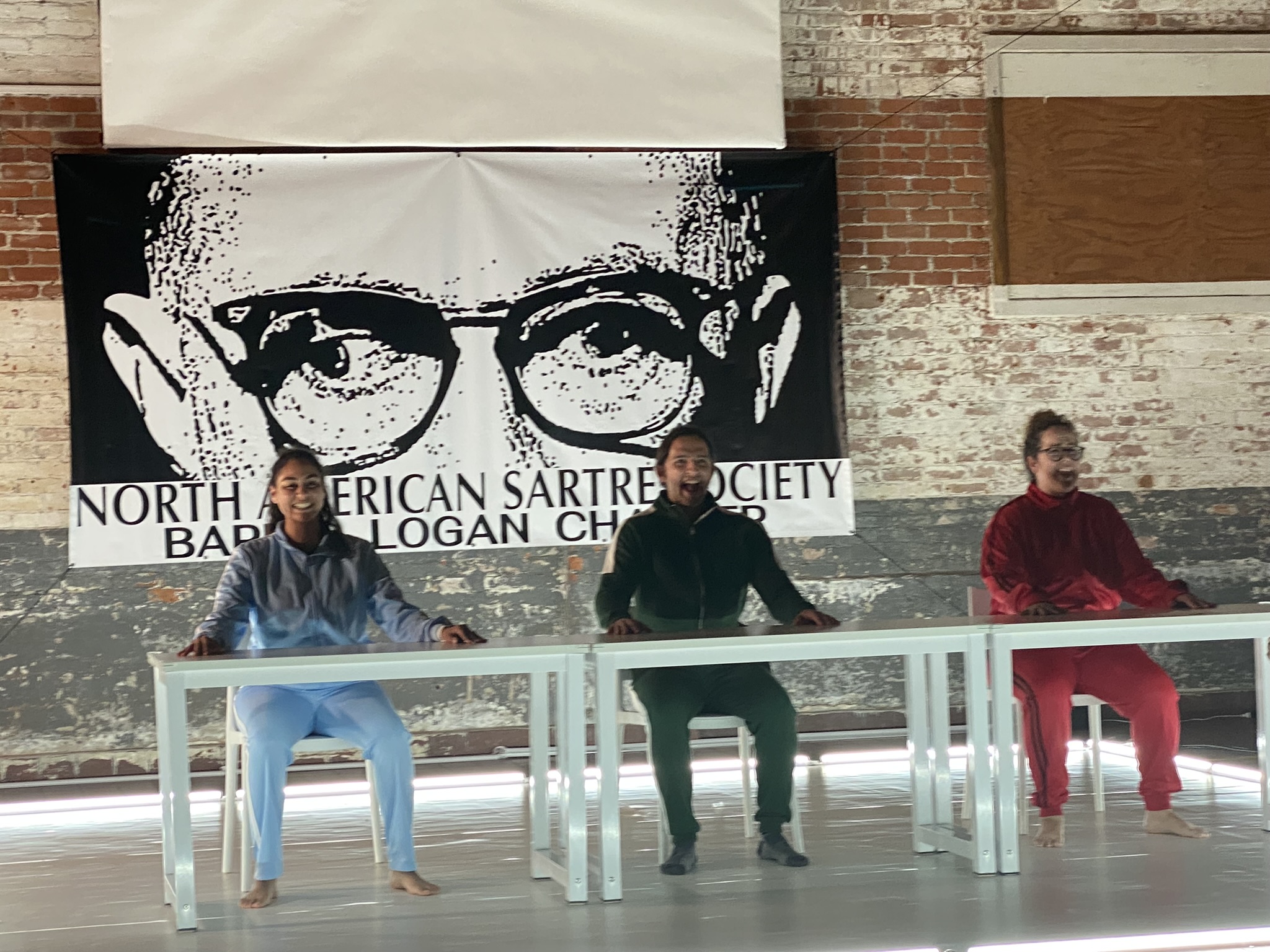Project [BLANK] Presents a Brilliant Production of Andy Vores’ Opera ‘No Exit’
Is there any play that captures mid-20th-Century existentialism more succinctly than Jean-Paul Sartre’s No Exit? Although the intensity of Satre’s dialogue for his three characters trapped in what they think is hell’s antechamber is clearly operatic, only British composer Andy Vores has dared turn No Exit into an opera.

(l. to r.) Mariana Flores-Bucio, Miguel Angel Zazueta & Leslie Ann Leytham [photo courtesy of Project [BLANK]
Vores’ opera works so well because his succinct modernist musical style fits Sartre’s tense, acid dialogue brilliantly. Vores has deftly balanced the four vocal parts with four instrumental voices, and his angular musical counterpoint also parallels Sartre’s insistent exchange among his characters. At dramatic or deeply emotional moments in the opera, Vores assigns elaborate, effusive instrumental solo flourishes, especially to the soprano saxophone or the cello, that challenge the vocal line. Unlike a typical cantabile instrumental descant, which opera composers use frequently, these intense flourishes appear to compete with the singer, but Vores deftly manages to use that tension to strengthen his dramatic arc.
The Project [BLANK] cast offered four strong, accomplished singers whose vocal colors and styles could not have been more compatible. Miguel Angel Zarzueta’s expressive lyric tenor gave flight to Joseph Garcin, the character around whom the plot revolves, capturing both his assertive bravado as well as his underlying dread. Soprano Mariana Flores-Bucio used her bright, supple voice as Estelle Rigault to entice Garcin romantically, yet Flores-Bucio revealed compelling emotional depth when she discloses the infanticide that has sent her to the gates of hell.
Leslie Ann Leytham’s resonant mezzo-soprano served her well as Inez Serrano, the third member of this accidental romantic triangle, who vigorously attempts to win Estelle’s favor away from Garcin. Although baritone Jonathan Nussman as the Valet only escorts each member of the triangle into their secure room at the opera’s beginning, in his short time on stage he communicated an apt but smug politesse.
Jonathan Nussman was responsible for the opera’s excellent musical direction, although the instrumental ensemble payed without a conductor. This ensemble included Paul Roth, soprano saxophone; Robert Bui, cello; Batya MacAdam-Somer, viola, and Nathan Hubbard, percussion.
Robert Castro’s acute stage direction kept his actors in constant motion within the confines of their room without the slightest sense of affectation. Considering Bread & Salt’s stark, slightly industrial atmosphere, Victoria Petrovich’s Bauhaus-simple design proved a wise choice, as did the costumes of solid color contemporary exercise outfits. Petrovich outlined the room’s perimeter with a plain border of white florescent lights on the bare floor and gave each character a glistening white plastic table behind which to sit. The audience could clearly perceive the confines of the opera story’s room, but in truth, the audience and the singers were occupying the same space, which is Sartre’s point, of course.
In case the reader has forgotten, Sartre’s No Exit is the source for the iconic existentialist assertion, “Hell is other people.”
Project [BLANK] produced this opera at Bread & Salt in San Diego’s Barrio Logan June 9 — 11, 2023. The opening night performance was attended for this review.
